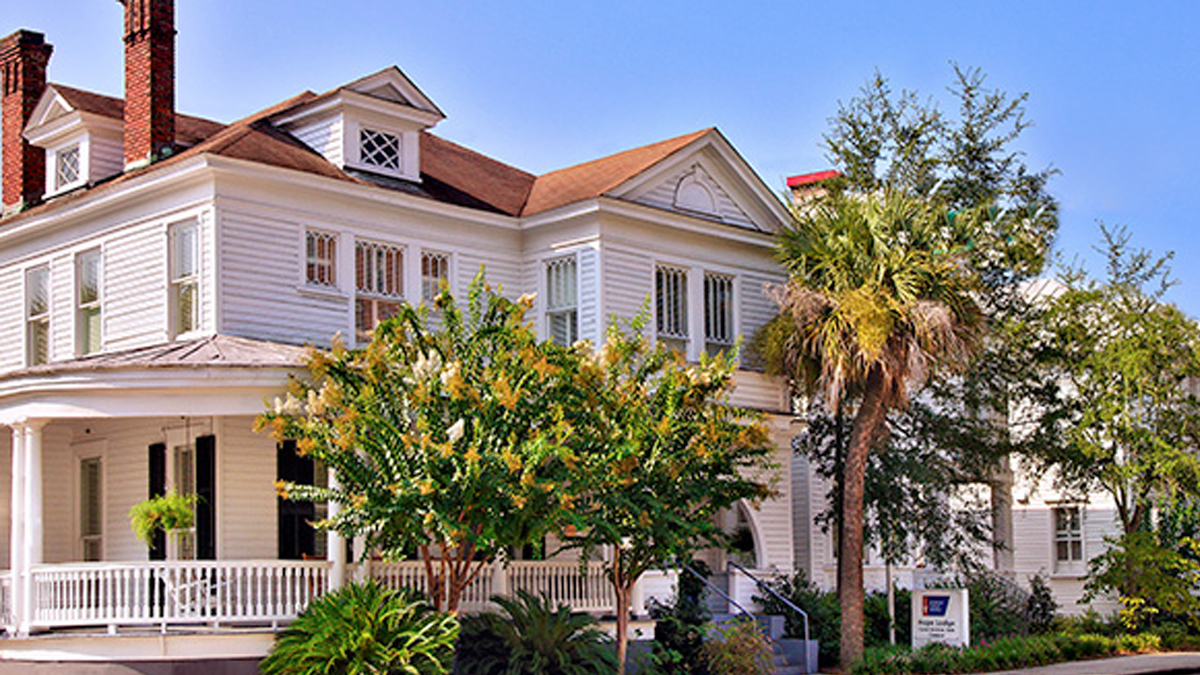When a family member requires extensive medical care, treatment can often mean a road trip to hospitals and specialists in the Charleston or Upstate area. Overnight visits will require finding meals and lodging as near to the medical facilities as possible, and extended stays can increase the financial and emotional stress exponentially. While most health care facilities have suggestions for travelers on their websites, here are some specific options available in both sections of South Carolina.
Charleston
The Medical University of South Carolina (MUSC) works actively with patient families. According to Manager of Guest Services Sharon D. Mazyck, “Last year, my hardworking team assisted with 11,000 accommodations for both patients and families. Partnering with local hotels for significant discounts can mean substantial savings.”
For adults requiring extended stays, the financial strain can be significant, and hotels may not be the best option. Jodie Schwartz, MUSC’s lead transplant social worker, recommends fundraising for those who do not have Medicaid or private insurance.
Ronald McDonald House Charities of Charleston (RMHC Charleston) hosts families traveling more than 40 miles with a sick child under the age of 18. Guests are asked to donate $35 a night, but they are never denied just because they can’t afford to pay. Parents can request placement on the waiting list directly through the guest services team at RMHC Charleston or through the medical facility’s case worker or social worker. Priority is given to critically ill children.
Designed to be a comforting, temporary refuge, RMHC Charleston can accommodate 32 families nightly with a common kitchen, dining and living areas; a playroom; media areas with free Wi-Fi; and laundry facilities. Guests are invited to use the fully-stocked kitchen and to enjoy free evening meals prepared by volunteers. Staffing is around-the-clock, and “Grady,” a lovable labradoodle, is always on hand to welcome newcomers.
For veterans and active military personnel, Fisher House is a 16-suite, VA-owned facility offering a fully-stocked kitchen, a laundry, a library, living/dining areas, a back patio and outdoor space. Volunteers prepare nightly meals, and staff are always present to greet and assist family members. According to Fisher House Manager Vicki Johnson, “More than 1,200 families a year find rest here at no charge. On those rare instances when we are at capacity, Fisher House pays for lodging at nearby hotels.”
To qualify for accommodations, families must be referred by a VA coordinated-care social worker and must live more than 50 miles from the medical center.
Established in 1970, the American Cancer Society’s Hope Lodge offers 18 free guest rooms to adult cancer patients in active treatment and their caregivers. Guests experience a sense of community while enjoying the stocked kitchen, volunteer-provided hot meals, outdoor spaces for reflection and meditation, common areas, a library and media space. Hope Lodge is staffed at all times. Participating in special programs such as “Reach to Recovery” and “Look Good, Feel Better” is an option. Applicants must live more than 40 miles from their medical facility and have a referral from their doctor or social worker.
A smaller facility, Hope House, is owned and operated by Mount Pleasant’s Hope Presbyterian Church. The fully furnished, three-bedroom house includes a stocked kitchen, living and dining areas, a porch and a prayer garden. Hope Cottage, in the back of the property, accommodates people who cannot navigate the upstairs bedrooms in the main house. This adults-only facility requires a referral from the patient’s social worker.
Joe’s House (www.joeshouse.org) lists lodging facilities for patients and their caregivers within a 20-mile radius of Charleston. Browsers may search by city and rate or by proximity to a health care facility. The type of lodging, address, discount rate and online booking availability also is included.
Upstate
Greenville’s Ronald McDonald House Charities of the Carolinas (RMHCC) assists families with sick children who are receiving active medical treatment locally. Families are asked to donate $10 nightly, but no one is denied because they can’t afford to pay. Initial referrals must be made by a hospital social worker, doctor, nurse clinician or case manager. With its recent expansion in June 2018, RMHCC now offers 24 rooms for families; continental breakfasts; a fully-stocked kitchen for grab-and-go meals; and a nightly, volunteer-prepared hot meal. Other amenities include indoor and outdoor play spaces, common areas, a sunroom, laundry and internet services.
Director of Administration and Marketing Kate Sanders is especially excited about the unique age range served here: “We welcome families of preemie babies through age 21. While the average family stay is about 10 days, the record for 2018 was 250 nights for the parents of a NICU baby. We are also proud of our thousands of volunteers who make RMHCC the wonderful, caring place it is today.”
The “Day Pass Room Program,” a special feature offered at RMHCC, allows families to enjoy a private room with bathroom and all the other amenities for three hours at a time in the morning, afternoon or evening. This may be all a family needs to assist them through another long-distance appointment.
On their websites, Prisma Health Care and most area hospitals offer lists of hotels near their facilities. Mentioning the Prisma Health Corporate Rate or presenting a referral from the health care facility can secure discounts; however, rates may be subject to change.
For those willing to do some online research, Airbnb, HomeAway and VRBO may offer affordable alternatives. Currently, Airbnb offers 1,100 options in the Greenville area with an average nightly cost of $55. Offerings vary from single bedrooms to those with kitchen privileges, to entire apartments and houses. Families are cautioned to read the reviews carefully and be alert for any cleanliness/allergy concerns that could jeopardize the patient.
South Carolina is fortunate to have excellent in-state health care facilities in both Charleston and the Upstate. Everyone consulted for this article was exceptionally helpful and empathetic. It certainly seems they understand the challenges traveling families may be facing and are waiting to help in any way they can.
By Janet E. Perrigo
